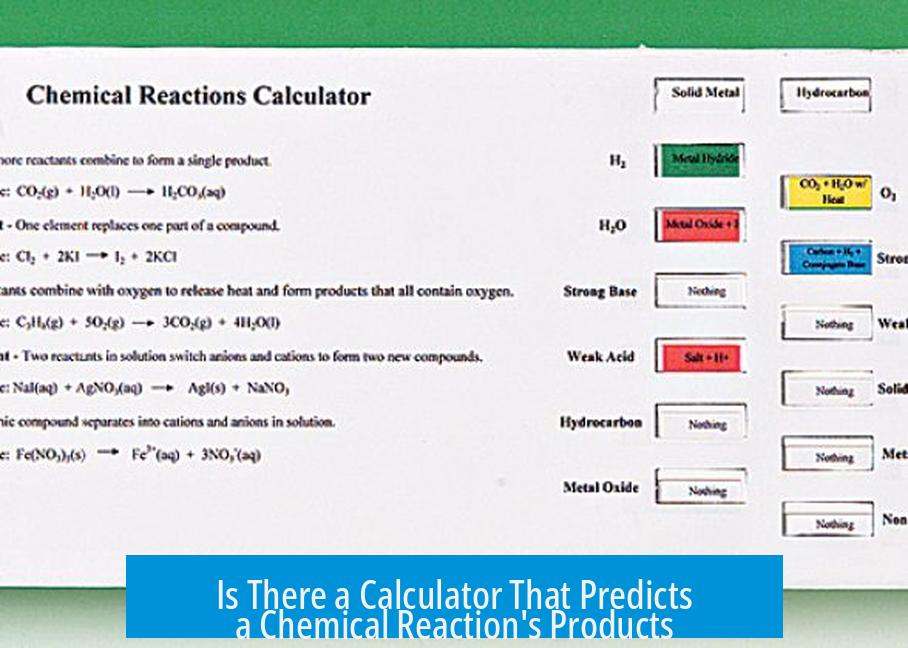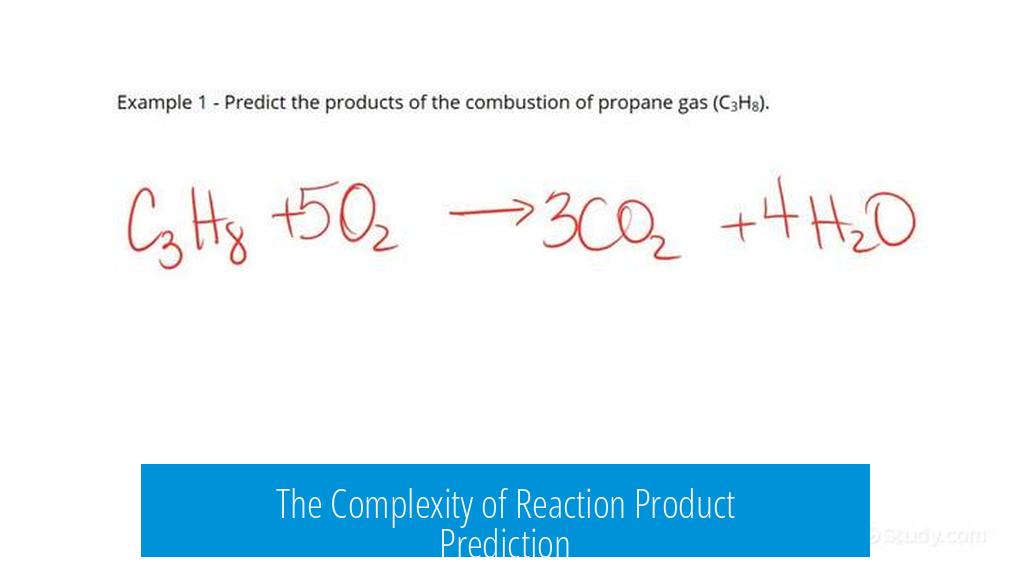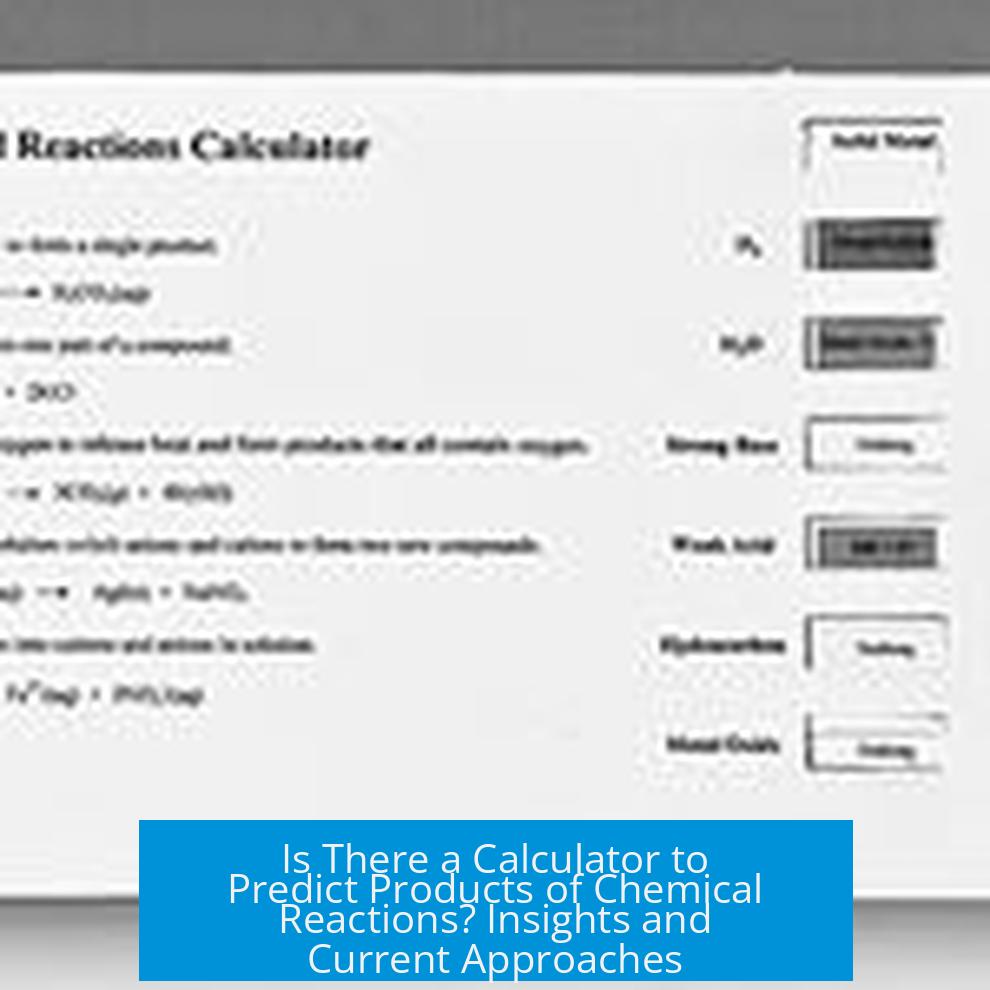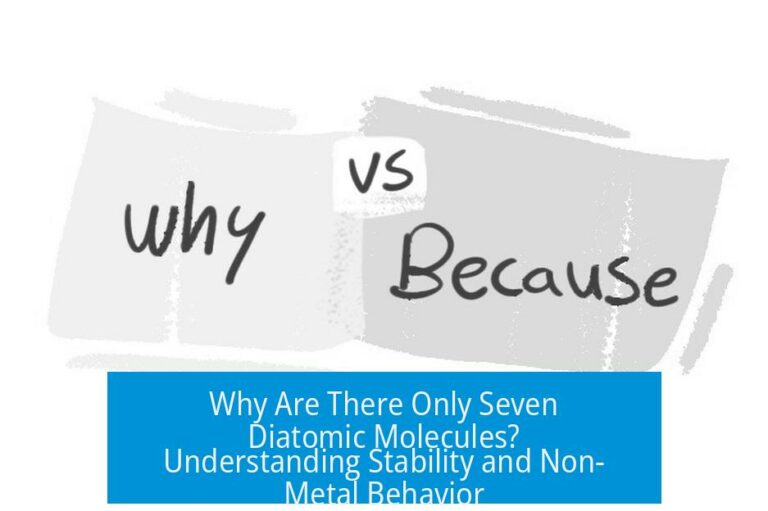Is There a Calculator That Predicts a Chemical Reaction’s Products?

There is no single calculator or software that can reliably predict the products of every chemical reaction. The prediction of chemical reaction products remains a complex task that depends on the unique characteristics of each system. While computational tools exist, no universal “calculator” delivers definitive answers for all chemical reactions.
The Complexity of Reaction Product Prediction

Chemical reactions involve various factors such as reactant nature, conditions, pathways, and intermediates. Each system behaves differently, so a one-size-fits-all tool is unfeasible. Predicting mechanisms and outcomes often demands specialized knowledge and experimental validation. Researchers must routinely explore these reactions case by case, as the process has no standardized procedure.
Computational Chemistry: Current Approaches
Computational chemistry uses theoretical methods like quantum mechanics and statistical mechanics to model chemical systems. These approaches estimate properties and possible reaction pathways. However, they require significant computational resources and expertise. These techniques provide insights but do not guarantee exact product predictions for every reaction.
The Myth of a Swiss Compound Prediction Calculator
Informal mentions exist about a so-called Swiss compound prediction calculator that can assess reaction difficulties and estimate physical properties. However, no such widely accessible or validated tool currently exists. The idea reflects the ongoing need and desire for comprehensive predictive software.
Practical Strategies in Chemistry
- Focus on selecting target products rather than randomly mixing reagents.
- Design reactions based on known methods and purposeful planning.
- Use computational predictions as supportive tools, not definitive answers.
- Prioritize safety, especially when handling reactive or oxidizing substances.
Key Takeaways
- No all-encompassing calculator predicts chemical reaction products reliably.
- Computational chemistry provides partial predictions using advanced models.
- Chemical reaction prediction is system-specific and complex.
- Planning targeted synthesis is more effective than random trial-and-error.
- Safety considerations remain essential in experimental work.





Leave a Comment